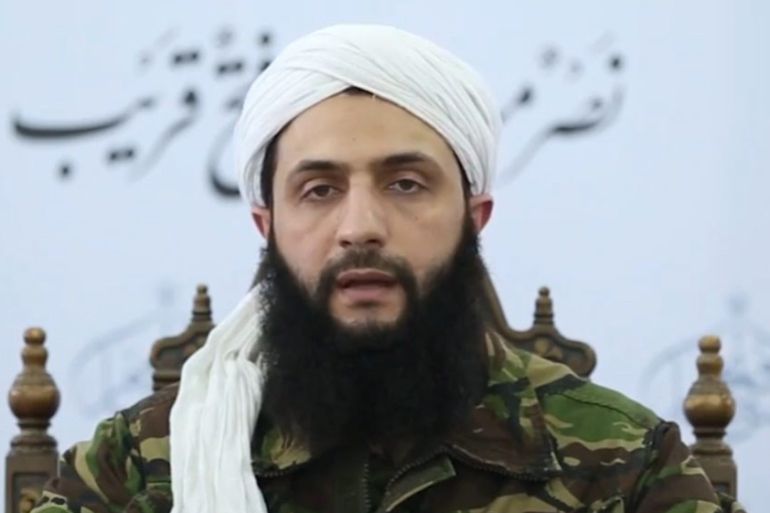Tough choices ahead as al-Nusra splits from al-Qaeda
The split from al-Qaeda has long been considered, and is to a significant degree based on Syrian revulsion.

The recent decision by Abu Mohammed al-Jolani, the leader of the al-Qaeda affiliate in Syria, al-Nusra Front, to sever its ties with al-Qaeda is a momentous and positive move.
Distancing itself from the ambitions of its sponsor is both good politics and may be good for Syrians.
Keep reading
list of 4 itemsGunmen kill at least 11 in two attacks in Pakistan’s Balochistan
Pakistan slams Indian minister’s remarks on pursuing suspects across border
Rights advocates demand end to Haiti deportations as unrest continues
And yet, the announcement has been received internationally with weary scepticism and a level of cynical dismissiveness that fails to understand the opportunity this decision represents.
The principal Western response has been that al-Nusra Front leadership’s decision is merely cosmetic, designed to remove itself from the list of groups subject to bombardment. This, of course may be true but it misses the point.
Good politics and clever diplomacy
It has taken Jolani and his colleagues more than a year to finally to make this move – a clear sign that the deal has not only been motivated by short-term tactical gains on the battlefield.
Make no mistake, internal discussions in al-Nusra Front have been vituperative and violent. A principal reason for not making the move earlier has always been that the foreign fighter remnants of al-Nusra Front would turn on their former colleagues with that particular violence reserved for former friends.
Diplomacy between armed groups has always been an intriguing topic and we should not disregard it as a simple exercise – in fact, it is a rather risky endeavour and involves complex political negotiations.
Looking deeper into the issue reveals a few interesting caveats. The main push for separation from al-Qaeda has apparently come from the Syrian element in al-Nusra Front, impelled by the frankly horrified reactions of local Syrian communities to extremist governance.
Twofold strategy
In any conflict, local voices matter and can be decisive. Conflict parties need to understand that ruling a territory comes with responsibilities. Relying on local good sense is not a last resort, it is a powerful instrument.
Of course the desire to avoid air strikes and to be a less toxic ally of other Syrian armed opposition groups must have been important factors.
Peace-making always demands a suspension of belief in order to pursue possible ends. Syria, of all places, cannot afford to dismiss without study this new chance to remake the parties to that conflict.
But at the end of the day, they may only have been arguments that tipped the balance in the Nusra Shura towards making the decision to quit.
The split from al-Qaeda has long been considered, and is to a significant degree based on Syrian revulsion.
These two facts – pressure from below and a long-term strategy – seem to have been lost in the international assessment of last week’s decision.
OPINION: The ramifications of al-Nusra’s split from al-Qaeda
However, Jolani’s most difficult task lies still ahead of him. He now must decide how to use this new status in the months to come.
What role does al-Nusra Front – rebranded as Jabhat Fath al-Sham – want to play in Syria? How does he want to position the group? What is his message to Syrians who have suffered for years? These are tough questions that require a serious debate.
The best is the enemy of the good
As a mediator, I know that any shift in the geometry of conflict parties can present opportunities. We must not assume the worst before even asking these questions.
Peace-making always demands a suspension of belief in order to pursue possible ends. Syria, of all places, cannot afford to dismiss without study this new chance to remake the parties to that conflict.

I have spent the greater part of the last four years working to preserve a hope for Syria’s future.
Working for peace in Syria needs sober and unsentimental commitment. Over the years I learned that the best is the enemy of the good.
Peace processes are not perfectly designed procedures; creative ideas for peace often originate in unexpected ways.
Martin Griffiths is a mediator, and between 2012 and 2014 he served as a senior adviser to all three UN Syria Envoys.
The views expressed in this article are the author’s own and do not necessarily reflect Al Jazeera’s editorial policy.
